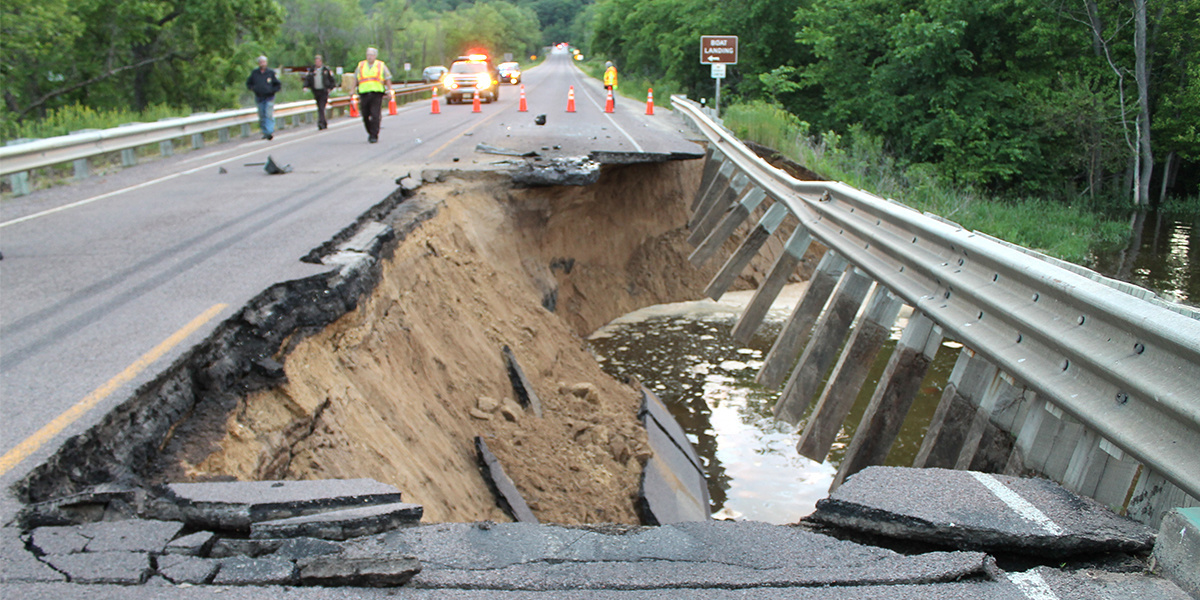

President Donald Trump boasted “a big week for infrastructure” Monday as the White House announced its long-awaited $1.5 trillion plan to improve the nation’s roads, buildings and power supplies.
Infrastructure is usually a bipartisan, consensus issue, but environmental groups criticized the White House’s initiative, as it involves a drastic rollback of federal environmental review to shorten the process of approving infrastructure projects.
“President Trump’s infrastructure proposal is a disaster,” Shelley Poticha, the managing director of the Healthy People & Thriving Communities Program at the Natural Resources Defense Council, said in a statement. “It fails to offer the investment needed to bring our country into the 21st century. Even worse, his plan includes an unacceptable corporate giveaway by truncating environmental reviews.”
Regulatory oversight for infrastructure projects usually falls to the U.S. Environmental Protection Agency, the Army Corps of Engineers, the U.S. Fish and Wildlife Service and other agencies. Instead, the White House plan calls for the creation of a “one agency, one decision” scheme, or one lead federal agency to streamline environmental review and the permitting process within 21 months.
As Trump said last month in his State of the Union address: “Any bill must also streamline the permitting and approval process—getting it down to no more than two years, and perhaps even one.”
The Wilderness Society has also listed a number of concerns about the infrastructure blueprint:
• Dismantling basic environmental safeguards. The leaked version of Trump infrastructure plan would eviscerate the National Environmental Policy Act (NEPA) by collapsing time lines, freezing out experts and delegating federal authority to states and private interests. NEPA provides for the essential public review process for federal projects. Billed as “streamlining,” the infrastructure proposal steamrolls over a wide array of safeguards that protect the nation’s air, waters and land.
• Pipelines through parks. The infrastructure plan would give Interior Secretary Ryan Zinke the authority to approve natural gas pipeline routes that cut through national parks.
• Paying for infrastructure by selling off public lands. The White House document on infrastructure called “Funding Principles” included a section titled “Disposition of Federal Real Property.” That provision would give the president authority to use executive orders for “disposal of Federal assets to improve the overall allocation of economic resources in infrastructure investment.”
“With this infrastructure plan, President Trump would line the pockets of oil and gas companies while steamrolling environmental safeguards,” said Drew McConville, senior managing director at The Wilderness Society, in a statement. “He is taking a bipartisan priority and turning it into a divisive scheme to reward friends in the fossil fuel sector.”
The Trump administration has already targeted more than 60 environmental regulations, including an Obama-era rule that protects infrastructure projects from flooding and rising sea levels exacerbated by climate change.
“With such a public record of promoting the interests of corporate polluters over communities and the environment, no one should be fooled by Trump’s infrastructure scam,” the Center for American Progress noted last month. “It is little more than a Trojan horse designed to gut the environmental protections that are necessary for the clean air, clean water, wildlife and national parks that truly make America great.”
Finally, as the New York Times pointed out, an infrastructure strategy led by an administration that denies climate change and has reversed critical environmental protections could mean that costly new infrastructure projects may be quickly rendered obsolete by the impacts of a warming planet.
“The impact of not considering climate change when planning infrastructure means you end up building the wrong thing, in the wrong place, to the wrong standards,” Michael Kuby, a professor of geographical sciences and urban planning at Arizona State University and contributing author to the National Climate Assessment, told the publication. “That’s a whole lot of waste.”
'Disaster Capitalism Disguised as Progress': Critics Rip Trump Infrastructure Plan https://t.co/mQr1GIAsTp #InfrastructurePlan @WenonahHauter @foodandwater @democracynow @IENearth @greenpeaceusa
— EcoWatch (@EcoWatch) January 31, 2018

 233k
233k  41k
41k  Subscribe
Subscribe 